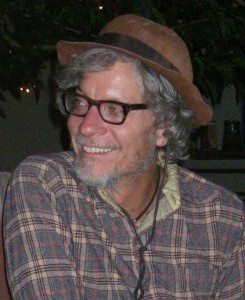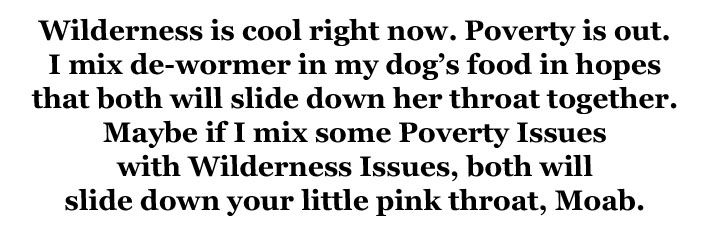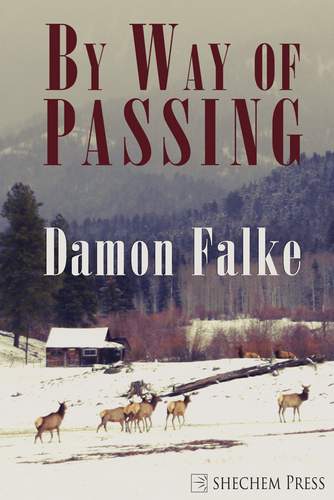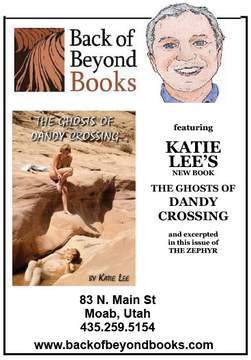For more on Daniel Shellabarger (Suelo) today, almost 20 years after he penned this ‘Letter of the Month’ to The Zephyr, see the update at the end of his essay…
From the May 1995 Zephyr
This…is about prickly pear and poverty.
On the one hand, Moab, you give me hope; on the other hand you’re pathetic. The good news is hundreds of Moab’s hippest show up at every wilderness hearing, where the room is often packed to standing room only. The lame news is only seven folks straggled in to the Poverty Forum of the Southeastern Utah Association of Governments on April 6. Interestingly, the majority of those attending were minorities. And back in March, a whopping six individuals packed the SEUAOG hearing on housing.
Wilderness is cool right now. Poverty is out.
I mix de-wormer in my dog’s food in hopes that both will slide down her throat together. Maybe if I mix some Poverty Issues with Wilderness Issues, both will slide down your little pink throat, Moab.
When I speak up for wilderness, my Rush-groupie friends give me some rap about how we damn bleeding hearts care more about trees than human beings. I tell them that’s just as ridiculous as saying that I care more about my liver than my brain. But I do concentrate more on my liver than my brain if my liver happens to be sick, and vice versa. My liver and my brain are interdependent, I say, and I’ll die if either is snuffed out. I might even throw in something noble-sounding, like, “Give me trees or give me death.”
However, since the Poverty Forum, I’ve reconsidered the words of my conservative friends and family. Maybe we do care more about trees than humans. Maybe we are trying to sever our head from our body. Where are my alternatively-adorned, funky friends these days when it comes to facing directly-human problems like Poverty or Lack of Health Care or Substandard Housing? Of course, if my starched-shirt-God-fearing-
It is true that part of me says, to hell with humans. A sorry lot we are—never seeming to get it together. Poverty shmoverty. It’s more refreshing to concentrate on non-dysfunctional things like cryptobiotic soil and collared lizards and bighorns and arches—and cactus, too. After all, these are the things that bring hip people to Moab. Cool folks come here to escape the dysfunctional Race of the proverbial Rat. Sometimes I sense an unspoken attitude in Moab: “Go back to the city ghettos with your grunge and your rage if you’re gonna whine about homelessness, domestic violence, and AIDS!” It’s all so wearisome.
Weariness. It reminds me of some experiences in Ecuador. I once lived in an 80-house village on a 10,000-foot-above-sea-level mountain in the Andes. I loved hiking through the green patchwork plots planted sideways on the slopes to a rare forest a couple miles away. It was a gnarly-tree-filled fog forest, teaming with dripping plants, tree frogs, exotic insects, birds, and florescent flowers. But after two years, I noticed that it was a much longer distance to my fantastical forest. In the evenings during those two years, I had seen women burdened under heaps of wood on their backs, slowly gallumping from the forest to the family hearth. No wood, no dinner. No wood, no warmth.
On a non-cloudy day, I could see barren, eroding desert ridges to the south, all the way to the horizon where the snowy volcano, Cayambe, protruded from the equator. Over the years, these once-green mountains had been stripped for firewood, non-terraced farming, and grazing. To the less-populated north, the mountains were still green. To the northwest, in the distance, I could see an uninhabited, lush, terraced mountain—a legacy of the pre-Columbian Shiri Indians on the outskirts of the Inca Empire. Now, the hand-to-mouth living of post-Columbian poverty prevents these Inca and Shiri descendants from even thinking about things like erosion—even when erosion means vanishing farmland and vanishing food on the table. These Ecuadorians’ disregard for the environment was a constant fountain of frustration for me and my fellow privileged.
Talking about designated wilderness seems nuts when you’re calculating the next meal for your kids, especially when your life is firewood. It’s kind of hard to think about uranium tailings seeping into the Colorado when you’re shivering in a dilapidated trailer on a December night. With the exception of a few pockets of hunting and gathering philosophies outside Civilization’s reaches, environmental consciousness, like organic brown rice, is mostly a luxury sprinkled amongst the educated middle and upper classes.
How about we think of environmental consciousness as a right of all classes rather than a privilege? How about we work at dissolving class distinctions? How about we make the environmental cause something everyone can swallow?
Here’s basically what I’m trying to say. If you want to save the environment, raise consciousness. If you want to raise consciousness, show up at wilderness forums AND poverty forums. Then get to work. Consciousness runs on good food, health, decent shelter, and healthy environment. The head runs on the body and the body runs on the head. Can you defend the environment without defending human dignity? Can you protect canyons and ignore human poverty? Who’s going to stay and speak for wilderness if nobody but robotic money-lovers can afford to live here? Humans are connected to cactus and catfish. The tummy is tied to the heart and the hands, along with the pituitary gland and the gall bladder. And the brain is bound to the butt, which is not just for sitting on.
Sincerely,
Daniel Shellabarger
Moab
UPDATE:
Daniel James Shellabarger (known as Daniel Suelo, or simply Suelo, born 1961) is an American  simple living adherent who stopped using money in the autumn of 2000.[1] He was born in Arvada, Colorado, a suburb of Denver, and currently lives part-time in a cave near Moab, Utah when he is not wandering the country.[1]
simple living adherent who stopped using money in the autumn of 2000.[1] He was born in Arvada, Colorado, a suburb of Denver, and currently lives part-time in a cave near Moab, Utah when he is not wandering the country.[1]
http://en.wikipedia.org/wiki/
also:
‘MEET THE MAN WHO LIVES ON ZERO DOLLARS’ by Christopher Ketcham
http://www.details.com/
& the book:
‘THE MAN WHO QUIT MONEY’ by Mark Sundeen
To read the PDF version of this article, click here.
To comment, scroll to the bottom of the page.
Don’t forget the Zephyr ads! All links are hot!






